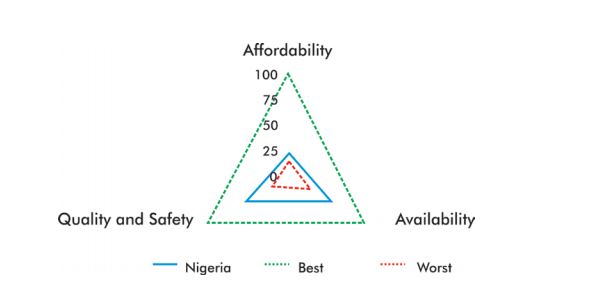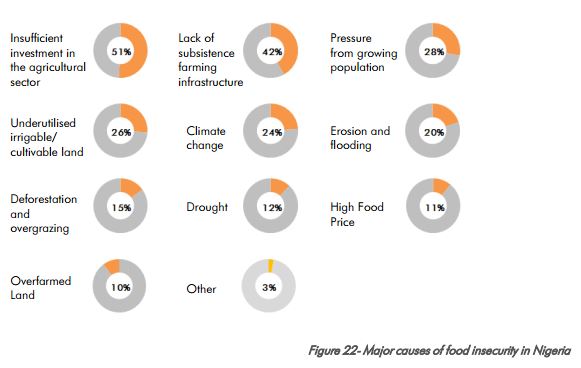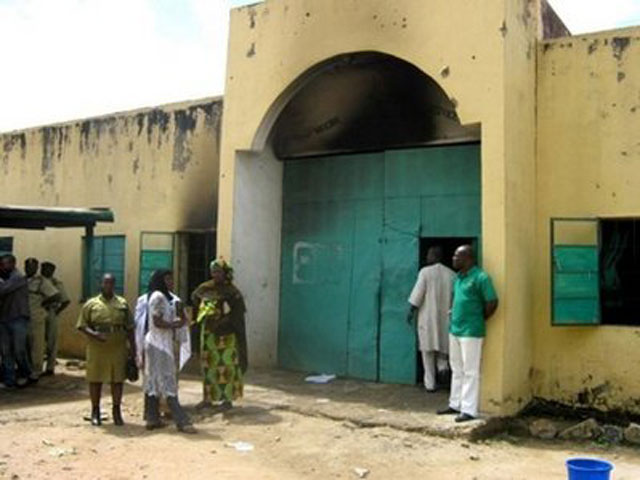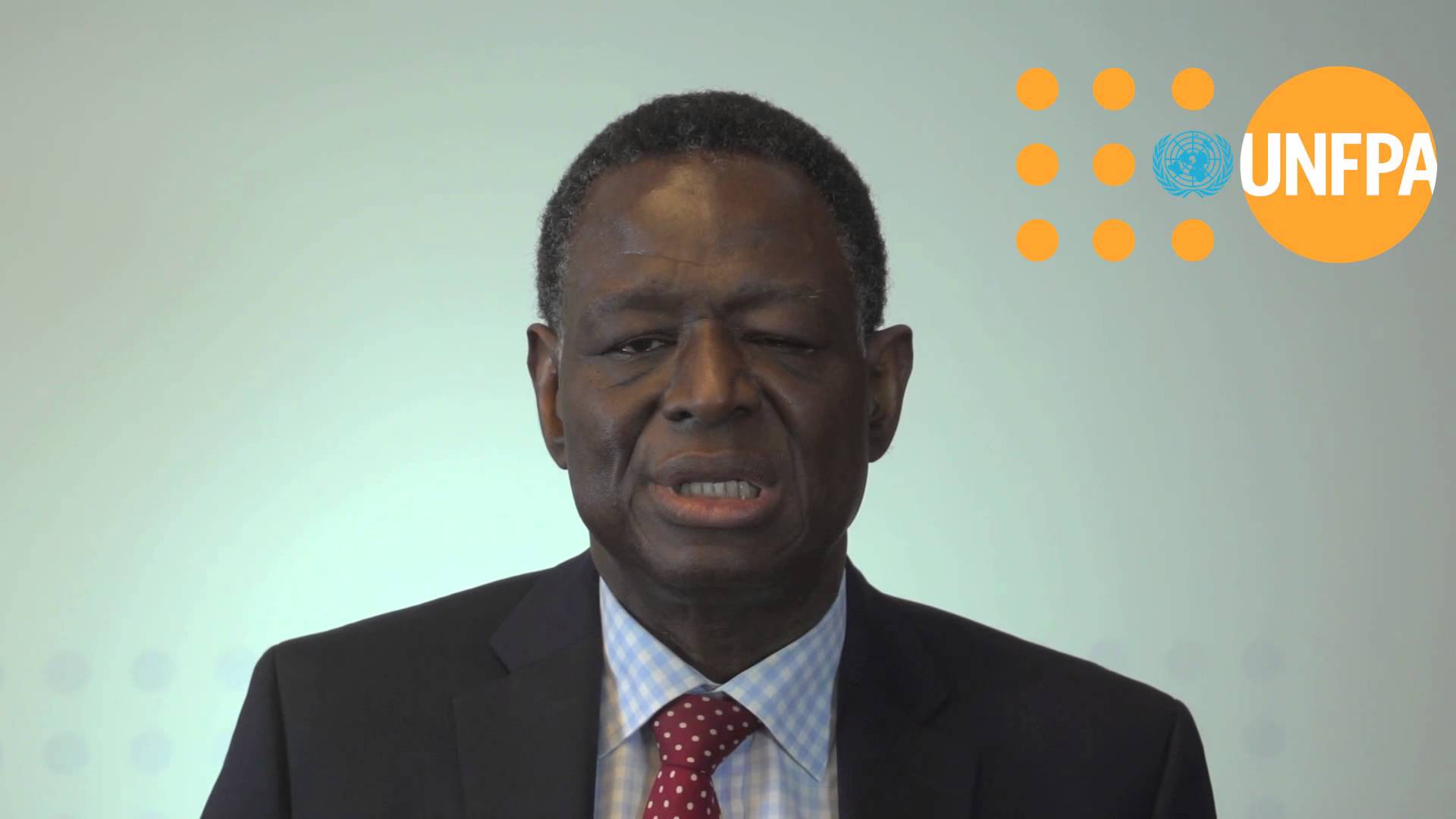More than 93 million Nigerians are currently battling food insecurity, Phillips Consulting’s ‘Household Economy Survey’ has established.
The survey, which assesses the socio-economic state of Nigerian households to determine the proportion of vulnerable households in the country, found a compelling relationship between food insecurity and unemployment.
WHAT IS FOOD INSECURITY?
According to the United Nations (UN) World Food Programme (WFP), people are considered food-insecure when there is no “availability and adequate access at all times to sufficient, safe, nutritious food to maintain a healthy and active life”.
Advertisement
Going by the UN definition and the Phillips Consulting survey, 51 percent of Nigeria’s population of 183 million (which mounts to 93 million) cannot boast of availability and adequate access at all times to sufficient, safe, nutritious food to maintain a healthy and active life.

FOOD INSECURITY COMES WITH UNEMPLOYMENT
This nationwide survey was carried out between May and June 2016, with a focus on assessing the following four main areas of household economic stability: food security, health and education, household finance (income and expenditure), and household assets.
Advertisement
The survey, which considered 5,747 respondents from 12 states across the country, revealed that over 31 percent of respondents had experienced food insecurity for a few months (between one to four months continuously) within the past year.
The survey further demonstrated that there is a strong relationship between food insecurity and household size; larger households were more prone to food insecurity.
Thirty-eight percent of households consisting of between 11 and 15 people stated that they experienced food insecurity most months, in comparison to the 23 percent of respondents with 6 to 10 household members.
“As one may expect, respondents in full time employment were much more likely to be food secure than those who were not; about 40% of employed respondents had never experienced food insecurity, compared to only 20% of unemployed and 28% of self-employed respondents,” said the report.
Advertisement
“Unemployed persons are more vulnerable to food insecurity, due to the unavailability of financial resources; likewise, self-employed respondents may suffer from inconsistencies or fluctuations in income, thus affecting their food security status.”
FOOD SECURITY TOO EXPENSIVE FOR NIGERIANS
Food was also rated as the highest household expenditure by over half (53%) of respondents, far ahead of other expenditures such as shelter (15%) and transportation (10%).
Advertisement
The current inflation rate of over 16% and the sharp increase in the prices of imported food (due to the difficulties experienced by importers in securing foreign exchange) have had a large negative effect on consumers, affecting their access to different food items.
OTHER INDICES OF NIGERIAN WELL-BEING
Advertisement
Over 64% of respondents have access to healthcare services; however, when segmented across settlement type, almost half of the rural respondents (47%) reported having no access to healthcare, in comparison to just 31% of urban respondents.
When asked if they (or any member of their household) had sought medical care in the past year, 72% said “yes”, with the most common reason being to seek treatment for malaria (68%). For education, most respondents (75%) were educated up to tertiary level.
Advertisement
Access to finance was highlighted as a challenging area for respondents, with 73% indicating that they had no access to any financial support, in the form of loans, mortgages, etc. Households need financial support for various reasons, such as funding for new business ventures, rent payments, school fees and transportation costs.
With limited access to formal financial support (due to high lending interest rates and other impediments), it is therefore important that the federal government puts in place enabling policies and frameworks that work towards encouraging the public to source funds from the formal sector.
Advertisement
THE ‘MOBILE’ SILVER LINING
The majority of respondents (47%) own communication and entertainment devices such as mobile phones, tablets and laptops. A large number (41%) also have household appliances and furniture, such as refrigerators, television sets and generators.
Nigeria is the highest-ranked African country with regards to number of internet users and also has over 150 million active mobile phone lines.
Nigeria is also a huge market for household appliances, with international players currently taking advantage of the country’s demographic advantages.
THE TICKING TIME BOMB
With Nigeria’s exponential population growth showing no signs of decline, the size of households are bound to become even larger.
If Nigerians must be able to feed in the years to come, Phillip Consulting recommends that crucial measures be established to prepare for this population growth well into the future, through increased investments in the agricultural sector and improved food production practices, as highlighted by survey respondents.
Add a comment








